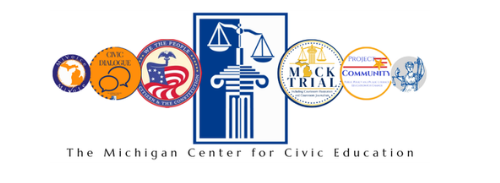Students will learn about the process of amending the Constitution. They will review the details of the amendment process and discuss its pros and cons. In class activities, assignments, and the Lesson Extensions, student partners and groups will create persuasive presentations that they will share with the class to gain support for an amendment.
Civics Lessons
What Makes an Amendment?
We the Students: Writing a Class Constitution
The Preamble to the U.S. Constitution sets out the purposes or functions of American government as envisioned by the framers. Using the Preamble as a guide, students will identify the purposes of their own classroom and create a class “constitution.”
Interpreting the Law
Students learn why laws need to be interpreted by discussing laws/constitutional provisions. They present their findings to the class.
The Need for Laws: Planet Lawless
This activity will help students understand the need for rules, the rulemaking process, and the role of the student / citizen. Students will be introduced to the relationship between rules and laws and how citizens can establish laws in their communities, much like rules in the classroom, to help them live together.
Prepare for Trial
In this lesson, students will learn about the relationship between constitutional rights and fair and unbiased jury selection. Students will focus on the process for selecting members of a jury. In addition, they will learn vocabulary relevant to understanding court proceedings, which they will apply in making juror selections. Throughout the main activities and lesson extensions, students will investigate the relationship between constitutional rights and fair and unbiased jury selection.
Equal Justice Under Law
In this lesson, students explore the cause-and-effect relationships
between historical events and the development of constitutional
principles that protect the rights of all people in America today. In its first constitutional challenge to the equal protection clause of the Fourteenth Amendment, the U.S. Supreme
Court decided to hear a case brought by a Chinese immigrant, not an American citizen.
How Should We Choose People for Positions of Authority?
This lesson helps students to identify the requirements of a position of authority and the qualifications a person should possess to fill that position. Students learn a set of intellectual tools designed to help them both analyze the duties of the position and to decide if an individual is qualified to serve in that particular position. During the lesson students practice using the intellectual tools.
Teaching about Due Process
This lesson presents the idea of Due Process. Students learn about Due Process with a scenario that sets out a number of issues that have to do with the due process of law.
The Constitution: Drafting a More Perfect Union
This lesson focuses on the drafting of the United States Constitution during the Federal Convention of 1787 in Philadelphia. Students will analyze an unidentified historical document and draw conclusions about what this document was for, who created it, and why. After the document is identified as George Washington’s annotated copy of the Committee of Style’s draft constitution, students will compare its text to that of an earlier draft by the Committee of Detail to understand the evolution of the final document.
Electing a President
This lesson starts with a political cartoon, then leads into discussion about the Electoral College and electing the U.S. President.

